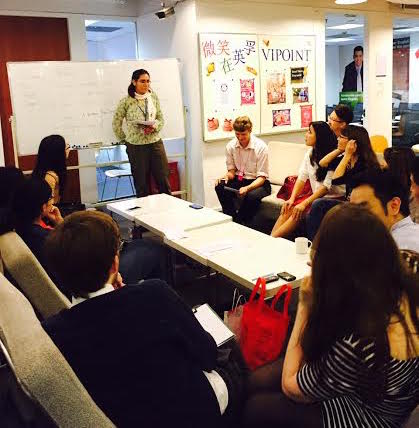A Brother from Another Mother: Raghubhai
What I chose to share today is a true story, of perhaps the kindest, and one of the liveliest, people I’ve met in my life so far.
His name was Raghubhai, a man born with polio, a condition which leaves the lower limbs of the body dysfunctional. I brought his photo to share.

I even remember vividly today the day that I met him. I don’t know if you’ve had the experience of meeting someone where there is so much you remember and you feel it’s not just by chance that you come across each other in life.
Raghubhai was a unique human being: a young man with the energy and enthusiasm of ~6 people put into one, despite his physical condition. He wore flip-flops on his hands to walk and rode a hand-cranked tricycle and later, a 4-wheeled motorcycle, to deliver meals to elders in a slum community. His life and work inspired me to serve with him for about a year in India. I’ve written about him online and hope to adapt some of the writings into a children’s book about this local unsung hero.
Raghubhai grew up in a village of Gujarat, a western state of India, which I was able to visit once, to a family that raised cows for milk and farmed. He came to Ahmedabad, a big city in Gujarat, as a young adult, determined to help his family through working in a big city. He also figured he’d have more opportunities in life in a bigger city.
He never resorted to begging, even though that’s the case of some people who have polio. His first job in Ahmedabad was arranging “chappals” (or slippers) at a local temple and packing “prasaad” (or blessed food) there. He went on to work at a tailoring unit, assisting employees there with making handmade clothing. He lived in a blind community at first, but later took on the responsibility of care-taking a property.
The day I met Raghubhai was in the summer of 2013. I had fallen ill due to food or the weather and was at a local health clinic. As I exited, Shirishbhai, who took me there, introduced me to Raghubhai who was on the sidewalk and ordered some “chai” (hot tea). Upon meeting him-- our eyes met even though Raghubhai was half my height on the floor—he gave an enthusiastic “Namaste” (Indian greeting) and shared the cup of tea with me. I was touched by the gesture, his eyes, and smile.

I later became like his assistant, accompanying him to deliver meals to the widows and widowers of the slum and writing about the work. There are too many acts of kindness that I witnessed, so I’ll just focus on one.
A volunteer from the UK and I joined Raghubhai to meet two young boys, Karan and Rohit. They had no mother and a father who would sometimes drink heavily and beat the children. Raghubhai started delivering meals to this family. He had us feed the children by hand that day to form a visceral connection to them (that of a mother nurturing a child). It was my first time actually physically feeding someone in need. I’ve donated to causes before, including hunger programs, but this felt less distanced, and more real.
Raghubhai started calling me “Varsha Didi” (“didi” means older sister in Hindi), despite us being the youngest of our respective siblings. He was a friend, brother, and mentor to me (even though he was younger in age). He passed away at the age of 29 in a road accident and taught me about the fullness of life (that it’s not how long one lives, but how fully one does) and that kindness, love, and inspiration are the only things one can leave behind.

[The article is a speech that Varsha shared with her students and fellow teachers at the Xujiahui Center, China]
Posted by Varsha Mathrani on Jul 14, 2015 | permalink
-
pankaj karnwal wrote ...
this is aweosme. (see link)
-
pankaj karnwal wrote ...
Nice article thanks for sharing with us. ctet ctet application form ctet exam date ctet notification ctet admit card ctet result ctet online form ctet answer key ctet answer key ctet reet

Zilong wrote ...
Dear Varsha didi :) Thank you so much for sharing this with us, and sharing it with your new friends in China! Coming from China, I feel that Chinese society really needs the inspiration from Raghubhai and more people like you! Thank you for being a messenger of service and love!